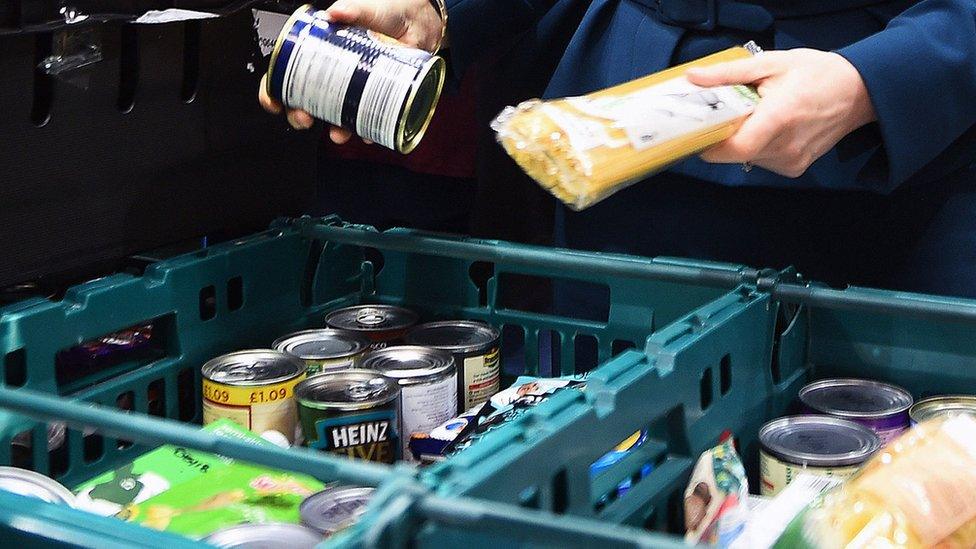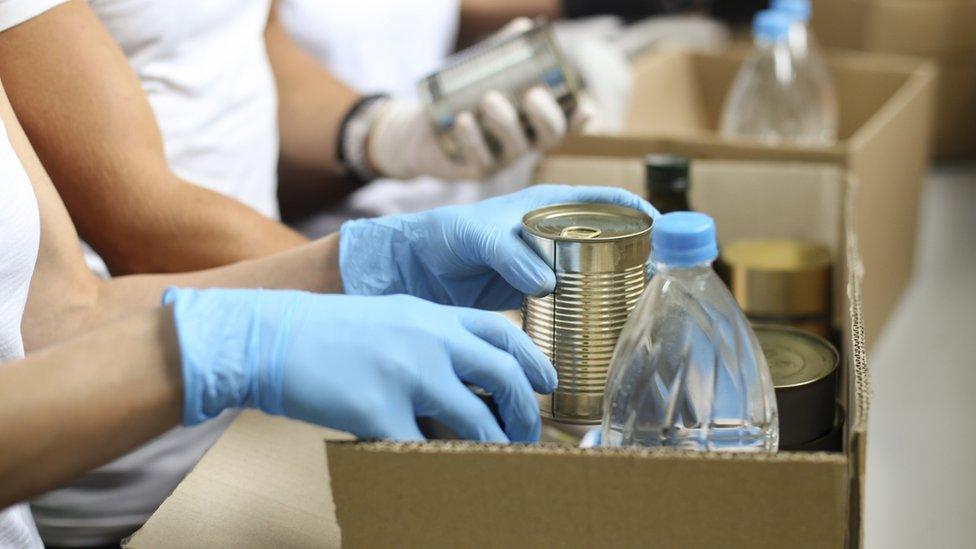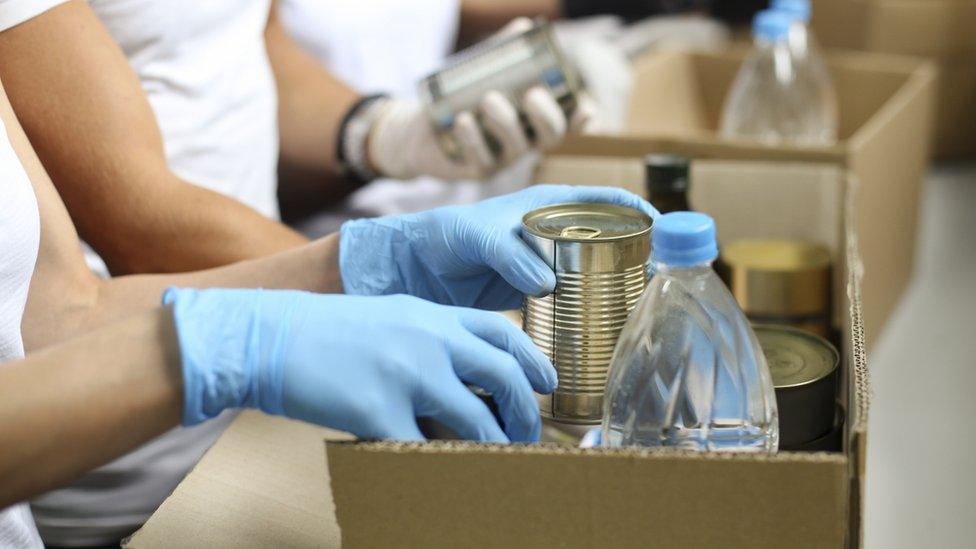Food banks: NI need for emergency parcels 'worst ever' in past year
- Published
- comments

Figures show more than 26,000 people in Northern Ireland are using a food bank for the first time
A record number of food parcels was distributed in Northern Ireland in the past year by the UK's largest food bank network.
The Trussell Trust provided 81,084 emergency food parcels between April 2022 and March 2023.
That represents the most food parcels the charity has ever distributed in the region in a single year.
The trust said it was "particularly alarming" that more than 35,000 emergency parcels were for children.
The latest figures are also higher than the number of food parcels delivered during the height of the Covid-19 pandemic, almost a third higher than in 2021-22 and more than double the figure in 2018-19.
The Trussell Trust network has 51 food banks and distribution centres in Northern Ireland and more than 1,600 across the UK.
But the charity said that as many other organisations also run food banks, its figures do not fully reflect their overall use.
Some community and church groups across Northern Ireland also run independent food banks.
Situation is 'worst ever'
Jonny Currie, Northern Ireland lead for the Trussell Trust, said he is "incredibly concerned at the increasing level of need" across Northern Ireland.
He told BBC News NI the situation was the worst he had ever seen.
"We are seeing that a range of people from all sorts of backgrounds are having to rely on emergency food, from folks who are struggling on social security to be able to pay for the essentials, through to people who are in work," he said.
"So roughly 20% of people who are referred to foodbanks in our network have someone at home who is in work.
"We are incredibly concerned about the year that lies ahead of us."

Mr Currie said local food banks are incredibly concerned about the year ahead
Mr Currie said the rising cost of food is affecting more people every day.
Over the past year, the cost of living has soared.
Rising prices for bread, cereal and chocolate, for example, have helped push food prices to a 45-year high.
More people struggling
Mr Currie said the main reasons most people were referred to local food banks was because their income was not enough to meet the essentials, insecure work or a sudden life event that has affected them financially.
"The most pressing issue is the cost of essentials is rising and that's pushing more and more people through our doors," he said.
"The challenge that we face as a food bank charity and for other providers of this type of crisis support is, it's simply not sustainable long term.
"Food banks shouldn't exist - we are glad that they do - but we want to ensure that people have ways of accessing an income so they can afford the essentials for themselves."
A statement from Trussell Trust added: "More than 26,000 people in Northern Ireland are using a Trussell Trust food bank for the first time - this is almost the same as the population of the town of Antrim."
December 2022 was the busiest month on record in the region, with 12,262 parcels distributed.
A parcel typically has food for one person for three days but it also provides parcels with food for one person for seven days.
The figures combine the provision of both types of parcel.

Of the 81,084 emergency food parcels distributed in the past year, more than 35,000 were for children and almost 46,000 for adults
The trust has called for Universal Credit payments to rise to cover the cost of essentials such as food, heating and clothes.
It said that would reduce the need for people to use food banks.
Mr Currie said those most vulnerable needed a functioning government at Stormont to make decisions and create policies that affect those who are most disadvantaged.
"We really need a long-term plan that will address poverty. We need programmes that will put more money in people's pockets and we need a strong network of local services so that people can access support before having to turn to a food bank," he added.
Previous analysis has suggested that around one in four children in Northern Ireland are living in poverty.
A scheme to provide payments to families on low incomes to help with the cost of food during school holidays was, however, recently axed by the Department of Education.
Related topics
- Published22 April 2021

- Published18 March 2022

